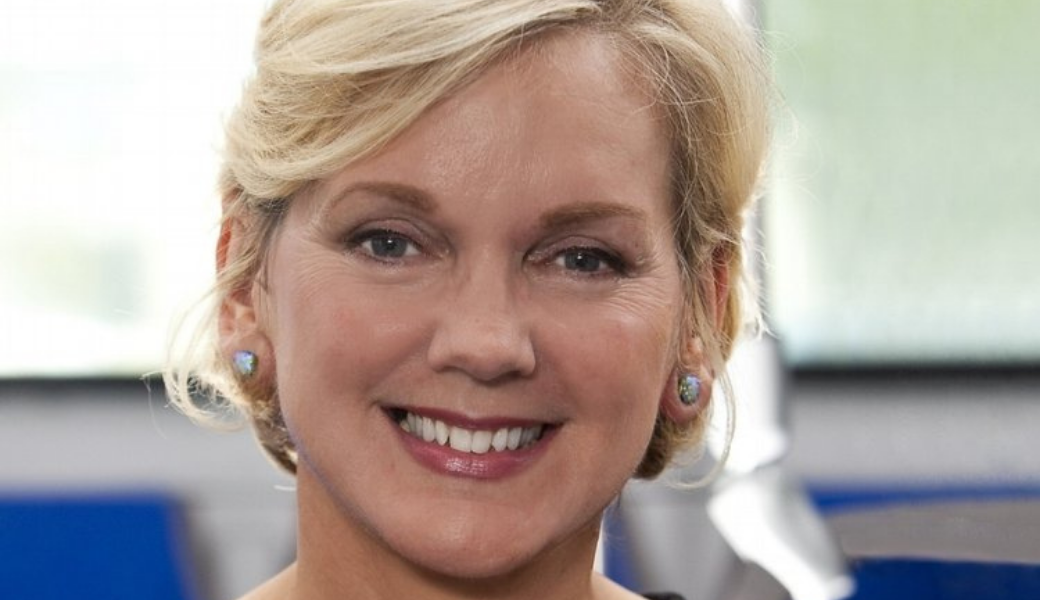
In a surprising twist that highlights the fickle nature of political allegiances, former Energy Secretary Jennifer Granholm recently remarked that Democrats would “welcome” tech billionaire Elon Musk’s support, specifically his financial contributions, despite his rocky relationship with President Trump.
The shift in tone from the Democratic Party is telling. Once critical of Musk’s involvement in Trump’s administration and his business practices, Democrats are now turning to him in desperation, asking for his help as they face mounting challenges in the upcoming election cycle.
Granholm’s comment at Politico’s 2025 Energy Summit, when she said that the Democrats would “welcome him helping us out,” underscores the hypocrisy and opportunism that have come to define much of the political discourse within the party.
Granholm quickly clarified that this wasn’t about Musk’s political involvement but rather his financial backing. She didn’t shy away from admitting the underlying reality: the Democratic Party is willing to accept financial support from Musk, even though they’ve historically criticized him for his ties to the Republican Party and his outspoken support for President Trump.
But Granholm’s seemingly innocent remark exposes the crux of the issue: the Democrats, faced with internal divisions and struggling to secure financial backing, have reversed course on their stance toward Musk.
Their previous denouncements of him, especially in light of his ties to the Trump administration, now seem hollow and politically motivated. Musk, having been at odds with the left for quite some time, is now being courted by the same party that once criticized his every move.
It’s a clear indication of how far Democrats are willing to go to secure funding—no matter the cost to their credibility.
The remark came on the heels of an intense clash between Musk and Trump last week, which exposed the growing rift between the two powerful figures.

The fight, which played out on Musk’s X platform and Trump’s Truth Social platform, quickly escalated, with Trump calling Musk “crazy” and threatening to pull his government contracts.
Musk, for his part, alleged that Trump had ties to convicted sex offender Jeffrey Epstein, a claim that only served to further fuel the tensions between the two men.
What was once a seemingly strong relationship between Musk and Trump, particularly after Musk endorsed Trump following the assassination attempt in Pennsylvania in July 2024, has now become a political war of words.
This clash highlights the challenges Musk faces in navigating the turbulent political waters of both the Republican and Democratic parties. While he once seemed to be a strong ally of Trump, his recent public statements have led many to question whether he is positioning himself for a shift in political alignment.
Musk’s business empire, including Tesla and SpaceX, continues to thrive, but his willingness to engage in political battles—whether with Trump or the Democrats—has made him a target for both sides.
Granholm’s comments are particularly telling because they show the Democrats’ desperation to secure Musk’s financial support. While they are quick to criticize Musk for his ties to the Republican Party, they now find themselves needing his wealth and influence to shore up their own positions.
The once-strong condemnations of Musk’s business practices and political allegiances have given way to an embarrassing plea for his help. The irony of this situation is not lost on many who see it as a stark reminder of how opportunistic the left has become in their pursuit of victory.
The fact that Granholm specifically referenced Musk’s financial support rather than his political involvement is significant. It highlights the underlying reality that, when it comes to securing the resources necessary for political success, the Democrats will look the other way on ideological differences.

Their sudden shift in tone—now seeking Musk’s support—reveals a party that has no qualms about reversing course when it’s in their best interest.
This about-face is a far cry from the Democrats’ previous attacks on Musk, which were often fueled by his connections to Trump and his role in the administration.
Musk’s tenure in the Trump administration was marked by backlash from the left, who viewed his Department of Government Efficiency as a threat to government regulation and oversight.
His support for Trump, coupled with his business decisions, made him a lightning rod for criticism from Democratic leaders who painted him as an enemy of progressive values.
However, as the Democratic Party faces increasingly difficult challenges, including a deepening rift between its progressive and moderate factions, it is clear that Musk’s wealth and influence are too enticing to ignore.
The once vitriolic attacks on Musk have been replaced with an embarrassing turn toward him for financial help. In a way, the Democrats’ plea for Musk’s support represents a capitulation of sorts—an acknowledgment that their ideological purity is secondary to their desire for victory at any cost.
While Granholm and other Democratic figures may attempt to downplay the significance of Musk’s potential involvement, the reality is that their willingness to accept his financial support exposes the hypocrisy of their previous rhetoric.
For years, the left has castigated Musk for his ties to Trump, labeling him as a symbol of everything that is wrong with the intersection of business and politics. Yet now, when faced with a financial shortfall, the same figures are eager to court him.

Trump, for his part, has remained steadfast in his criticism of Musk, especially in light of their recent public spat. His threats to pull Musk’s government contracts, as well as the allegations about Musk’s ties to Jeffrey Epstein, underscore the growing tension between the two.
Despite the animosity, Trump remains committed to holding Musk accountable for his actions, even as the Democrats, who once criticized Musk for his relationship with Trump, now find themselves seeking his help.
The irony of this situation cannot be overstated. The Democrats, who once portrayed Musk as a villain for his support of Trump and his controversial business decisions, now find themselves in the position of needing his financial backing to maintain their grip on power.
The turnabout is not only embarrassing but also emblematic of the deeper issues within the Democratic Party, which has been increasingly willing to compromise its values and principles for political gain.
As for Musk, his position in the political landscape remains fluid. His recent clashes with Trump and the Democrats show that he is no longer willing to be pigeonholed by either party.
Musk’s willingness to engage in public disputes with political leaders, coupled with his business successes, has made him a figure of immense influence—one that both parties are eager to court for different reasons.
His future political involvement remains uncertain, but it is clear that his wealth and influence will continue to shape the political discourse in the coming years.
In conclusion, Jennifer Granholm’s recent comments about Democrats “welcoming” Elon Musk’s financial support underscore the hypocrisy and opportunism that have come to define much of the political discourse within the Democratic Party.
Once vehement critics of Musk’s ties to Trump, Democrats are now willing to overlook those differences in exchange for his wealth and influence.
This embarrassing about-face highlights the Democrats' desperation as they seek to secure the resources necessary for political success, even if it means cozying up to a billionaire they once denounced.
For Trump, the growing animosity between him and Musk only adds fuel to the fire, as both men continue to clash in a battle for political dominance.
Whether Musk’s financial support will ultimately sway the Democratic Party remains to be seen, but it is clear that his influence will continue to shape the political landscape for years to come.



-1750485486-q80.webp)